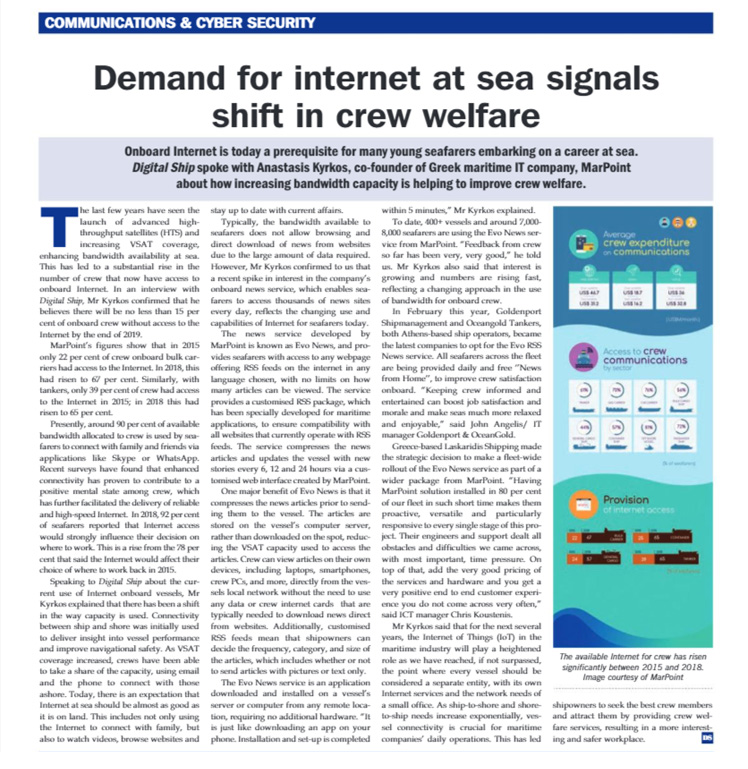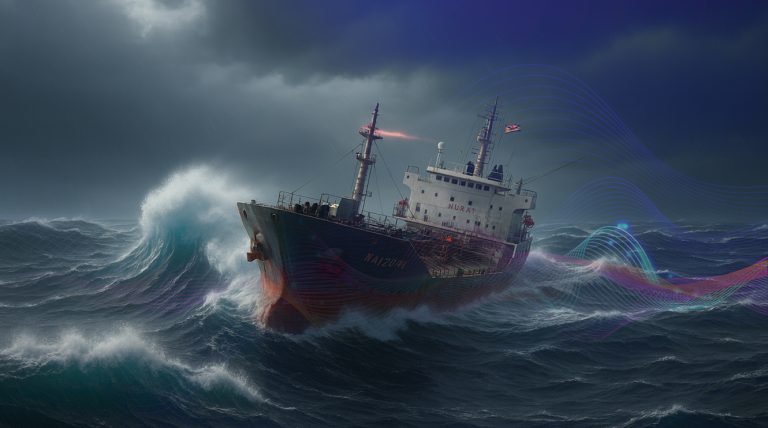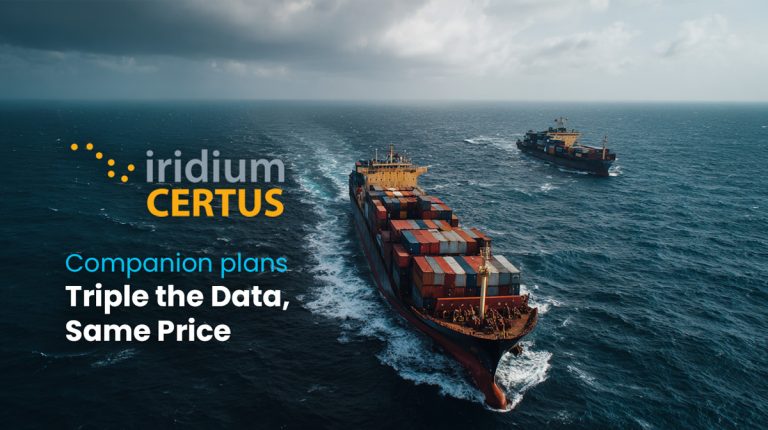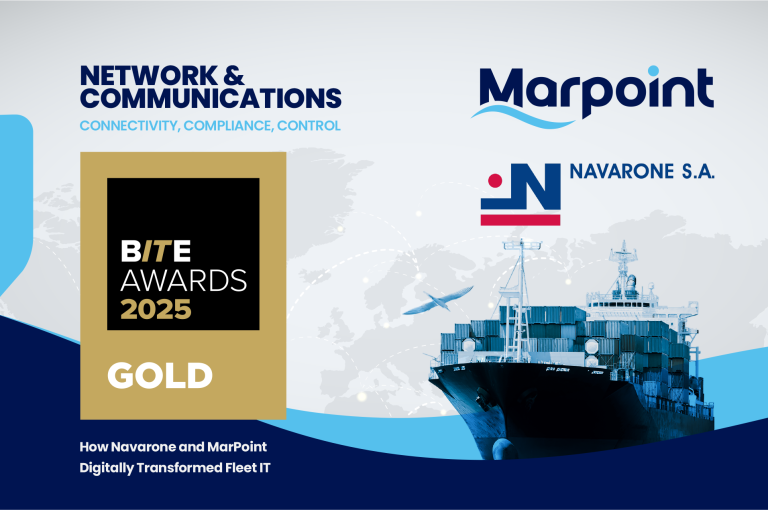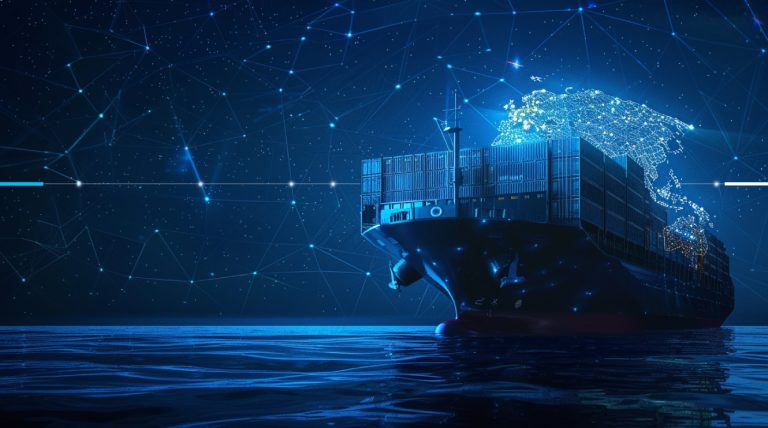Demand for internet at sea signals shift in crew welfare
Onboard Internet is today a prerequisite for many young seafarers embarking on a career at sea. Digital Ship spoke with Anastasis Kyrkos, co-founder of Greek maritime IT company, MarPoint about how increasing bandwidth capacity is helping to improve crew welfare.
The last few years have seen the launch of advanced highthroughput satellites (HTS) and increasing VSAT coverage, enhancing bandwidth availability at sea.
This has led to a substantial rise in the number of crew that now have access to onboard Internet. In an interview with Digital Ship, Mr Kyrkos confirmed that he believes there will be no less than 15 per cent of onboard crew without access to the Internet by the end of 2019.
MarPoint’s figures show that in 2015 only 22 per cent of crew onboard bulk carriers had access to the Internet. In 2018, this had risen to 67 per cent. Similarly, with tankers, only 39 per cent of crew had access to the Internet in 2015; in 2018 this had risen to 65 per cent.
Presently, around 90 per cent of available bandwidth allocated to crew is used by seafarers to connect with family and friends via applications like Skype or WhatsApp.
Recent surveys have found that enhanced connectivity has proven to contribute to a positive mental state among crew, which has further facilitated the delivery of reliable and high-speed Internet. In 2018, 92 per cent of seafarers reported that Internet access would strongly influence their decision on where to work. This is a rise from the 78 per cent that said the Internet would affect their choice of where to work back in 2015.
Speaking to Digital Ship about the current use of Internet onboard vessels, Mr Kyrkos explained that there has been a shift in the way capacity is used. Connectivity between ship and shore was initially used to deliver insight into vessel performance and improve navigational safety. As VSAT coverage increased, crews have been able to take a share of the capacity, using email and the phone to connect with those ashore. Today, there is an expectation that Internet at sea should be almost as good as it is on land. This includes not only using the Internet to connect with family, but also to watch videos, browse websites and stay up to date with current affairs.
Typically, the bandwidth available to seafarers does not allow browsing and direct download of news from websites due to the large amount of data required.
However, Mr Kyrkos confirmed to us that a recent spike in interest in the company’s onboard news service, which enables seafarers to access thousands of news sites
every day, reflects the changing use and capabilities of Internet for seafarers today.
The news service developed by MarPoint is known as Evo News, and provides seafarers with access to any webpage offering RSS feeds on the internet in any language chosen, with no limits on how
many articles can be viewed. The service provides a customised RSS package, which has been specially developed for maritime applications, to ensure compatibility with all websites that currently operate with RSS feeds. The service compresses the news articles and updates the vessel with new stories every 6, 12 and 24 hours via a customised web interface created by MarPoint.
One major benefit of Evo News is that it compresses the news articles prior to sending them to the vessel. The articles are stored on the vessel’s computer server, rather than downloaded on the spot, reducing the VSAT capacity used to access the articles. Crew can view articles on their own devices, including laptops, smartphones, crew PCs, and more, directly from the vessels local network without the need to use any data or crew internet cards that are typically needed to download news direct from websites. Additionally, customised RSS feeds mean that shipowners can decide the frequency, category, and size of the articles, which includes whether or not to send articles with pictures or text only.
The Evo News service is an application downloaded and installed on a vessel’s server or computer from any remote location, requiring no additional hardware. “It is just like downloading an app on your phone. Installation and set-up is completed within 5 minutes,” Mr Kyrkos explained.
To date, 400+ vessels and around 7,000-8,000 seafarers are using the Evo News service from MarPoint. “Feedback from crew so far has been very, very good,” he told us. Mr Kyrkos also said that interest is growing and numbers are rising fast, reflecting a changing approach in the use of bandwidth for onboard crew.
In February this year, Goldenport Shipmanagement and Oceangold Tankers, both Athens-based ship operators, became the latest companies to opt for the Evo RSS News service. All seafarers across the fleet are being provided daily and free ‘’News from Home’’, to improve crew satisfaction onboard. “Keeping crew informed and entertained can boost job satisfaction and morale and make seas much more relaxed and enjoyable,” said John Angelis/ IT manager Goldenport & OceanGold.
Greece-based Laskaridis Shipping made the strategic decision to make a fleet-wide rollout of the Evo News service as part of a wider package from MarPoint. “Having MarPoint solution installed in 80 per cent of our fleet in such short time makes them proactive, versatile and particularly responsive to every single stage of this project. Their engineers and support dealt all
obstacles and difficulties we came across, with most important, time pressure. On top of that, add the very good pricing of the services and hardware and you get a very positive end to end customer experience you do not come across very often,” said ICT manager Chris Koustenis.
Mr Kyrkos said that for the next several years, the Internet of Things (IoT) in the maritime industry will play a heightened role as we have reached, if not surpassed, the point where every vessel should be considered a separate entity, with its own Internet services and the network needs of a small office. As ship-to-shore and shoreto-ship needs increase exponentially, vessel connectivity is crucial for maritime companies’ daily operations. This has led shipowners to seek the best crew members and attract them by providing crew welfare services, resulting in a more interesting and safer workplace.

